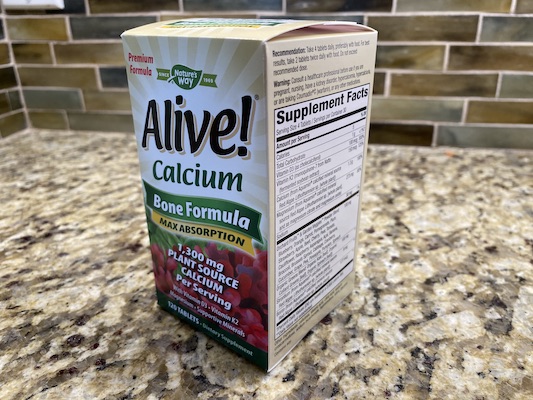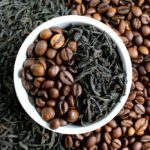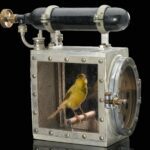
Natural vs artificial vitamins
There’s always a tug-of-war going on over whether Mother Nature can nourish us better than science can. Surely, with our giant brains, we can create foods that improve on what nature can provide?
But there exists solid evidence for humans that processed food has led to a wide range of serious diseases such as diabetes, heart disease, and obesity. The link above references a book that does an excellent job summarizing scientific research on both sides.
But what about food that merely has added vitamins and minerals? There are bird food brands like Dr Harvey’s and TOP’s that don’t use artificial vitamins and make bold statements about their beliefs.
Other pellets on the market contain fillers such as corn, soy, peanuts, added minerals and added artificial vitamins. TOP’s contains only real food ingredients.
TOPs Parrot Food—FAQs
And here’s the ingredient list for Dr Harvey’s Colossal Cockatiel blend. Note it follows the common advice of eating food whose ingredients you can pronounce.
Canary Grass Seed, White Millet, Safflower Seed, Canola Seed, Oat Groats, Sesame Seed, Sunflower Seed, Caraway Seed, Flaxseed, Coconut, Raisins, Bananas, Carrots, Hemp Seed, Apples, Macadamia Nuts, Walnuts, Almonds, Pine Nuts, Pistachios, Cashews, Filberts, Pecans, Brazil Nuts, Soybeans, Cranberries, Mangos, Orange Peels, Green Beans, Peas, Spinach, Green Bell Pepper, Red Bell Pepper, Celery, Parsley, Broccoli, Zucchini
Colossal Cockatiel Blend—Dr Harvey’s
A lot of people don’t realize that the “balanced” nutrition that pellets tout is due to taking a base of crushed grains, which don’t have much nutritional value, and adding lots of vitamins and minerals. Here are the ingredients of a popular pellet diet from Harrison’s. I’ve highlighted all the added vitamins and minerals:
*Hulled Gray Millet, *Hull-less Barley, *Corn, *Toasted Soybeans, *Peanut Kernels, *Sunflower Kernels, *Peas, *Lentils, *Toasted Oat Groats, *Brown Rice, *Chia, *Alfalfa, Calcium Carbonate, Bentonite, ;: Tocopherols (source of Vitamin E), *Sea Kelp, Salt, *Algae Meal, Vitamin/Mineral Supplement (Vitamin A Palmitate, Vitamin D3 Supplement, dl-Alpha Tocopheryl Acetate, Vitamin B12 Supplement, Riboflavin Supplement, d-Calcium Pantothenate, Niacin, Pyridoxine Hydrochloride, Biotin, Thiamine Mononitrate, Folic Acid, Zinc Sulfate, Manganese Sulfate, Copper Sulfate, Calcium Carbonate and *Sunflower Oil)
Harrison’s High Potency Fine
Solo research reports
So who is right? Science or Mother Nature when it comes to vitamins. Turns out there is more research on the topic than you can possibly imagine so I will start by quoting a few. Most come from human research.
First, there is the topic of whether artificial vitamins are even needed at all and at least one report has an unequivocal answer. Keep in mind this is about avoiding death and not improving health, but still intriguing.
Use of dietary supplements is not associated with mortality benefits among U.S. adults
Association Among Dietary Supplement Use, Nutrient Intake, and Mortality Among U.S. Adults: A Cohort Study—Annals of Internal Medicine—2019 May 7
Then, a shocking research report on Vitamin A supplementation in cockatiels.
Adult cockatiels at maintenance were much more susceptible to dietary Vitamin A toxicity than to dietary Vitamin A restriction. In fact, birds fed 30,000 g/kg Vitamin A developed dramatic changes in vocalization patterns and sufficient deterioration in feather quality and breast muscle mass that euthanasia and necropsy was warranted after 1 year.
Vitamin A is commonly supplemented through the water supplied or by addition to the diet. Many commercially available supplements prescribe levels of supplementation that result in very high levels of intake, often equivalent to 7,500-30,000 g/kg.
Adult Cockatiels (Nymphicus hollandicus) at Maintenance Are More Sensitive to Diets Containing Excess Vitamin A Than to Vitamin A–Deficient Diets—The Journal of Nutrition—2007 Sep 13
ConsumerLab
Rather than quote a lot of densely written research, ConsumerLab is geared more towards the consumer, so I will list a number of conclusions they’ve drawn about artificial versus natural vitamins.
It is generally best to get your vitamins (as well as minerals) naturally from foods or, in the case of Vitamin D, controlled sun exposure.
For example, multiple studies have shown that calcium from foods is safer than from supplements. Older women who get high amounts of calcium from supplements seem to have a higher risk of kidney stones, strokes, and even a greater risk of dying over periods of time.
A small increased risk of death has also been seen in studies of people taking supplements containing vitamin A and beta-carotene compared to those who don’t.
An analysis of data from the National Health and Nutrition Examination Survey (NHANES), among approximately 30,000 adults in the U.S., found that adequate daily intakes of vitamins A and K, magnesium, zinc, and copper from foods, but not from supplements — were associated with reduced risk of dying over a period of time. The study found that no vitamin or mineral supplement (including multivitamins) was associated with a decreased risk of death from cardiovascular disease or any cause after adjusting for factors such as age, gender, eating habits and lifestyle (Chen, Ann Intern Med 2019).
Is It Better to Get Vitamins From Foods or Supplements—Consumer Lab
There are no vitamins other than Vitamin C where the conclusion is that it doesn’t matter whether you get it naturally and synthetically. For Vitamin B3, synthetic forms cause less flushing as a side effect but aren’t more effective.
Conclusion
Well, the obvious conclusion is that feeding your bird foods where they can get the nutrients, vitamins, and minerals from whole foods is preferable to diets like pellets that do supplementation. This can either be less effective or dangerous, depending on the vitamin.
Products from TOP’s and Dr Harvey’s prove that you can have a whole food diet without needing synthetic vitamins at all. Also, feeding your bird fruits, vegetables, legumes, nuts, and table food can help get them the nutrition that they need.
Quite honestly, look at how many people eat. Some never eat processed food and they aren’t ending up at the doctor with vitamin deficiencies. Why should our pets be any different?





